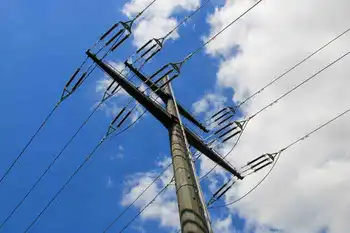Failed Electricity Policies Could Impact Prices
OTTAWA, ON -- - Consumers could pay for the bungled attempts by some governments to deregulate their electricity markets with higher prices and blackouts, the Conference Board of Canada warns.
High-profile failures, such as in Ontario and California, have added to an uncertain electricity market investment climate, scaring off a generation of investors, and have curbed the enthusiasm for needed market restructuring in North America, the board says in a recent report. "Policy uncertainties surrounding the future of restructuring, climate change and air quality have increased the risks for investment in the electricity sector," said board economist Gilles Rheaume.
"The unprecedented uncertainty in the electricity sector could lead to supply shortages, causing higher prices and rolling blackouts in some jurisdictions."
However, the report argues that some jurisdictions have successfully, if painfully at first, restructured their electricity markets, attracting new investors and saving consumers money.
"The policy uncertainties in the California and Ontario markets are well-publicized, but jurisdictions that successfully restructured their markets include the United Kingdom, Texas and the Pennsylvania/New Jersey/Maryland region.
"In Canada, Alberta has experienced a long and painful transition to competitive markets, but reforms have attracted new market entrants, convinced private investors to purchase publicly controlled assets, and produced lower wholesale prices for electricity."
The available evidence shows that reforms have been challenging but, on balance beneficial, leading to increased efficiency, the report states.
"Efficiency gains have generally been passed on to shareholders, employees, and consumers," it adds.
It concedes that some groups of consumers who had been subsidized under regulated monopolies ended up paying higher prices, and jobs were lost as former monopolies faced competition.
However, consumers on average have benefited from lower prices and more choice of suppliers and service, it says, and jobs have been created by the entry into the market of new competitors.
While there is no single right way to deregulate the electricity market, the goal should be to align the price of electricity with its true value to achieve the lowest sustainable price, it says.
"When restructuring is introduced, the price of electricity can become volatile in the short term," the report cautions. "Policy makers and regulators should recognize the importance of educating consumers about the market and of appropriately managing expectations about electricity prices."
The Ontario government, for example, scared off investment by changing its plans radically.
Related News

OEB issues decision on Hydro One's first combined T&D rates application
TORONTO - The Ontario Energy Board (OEB) issued its Decision and Order on an application filed by Hydro One Networks Inc. (Hydro One) on August 5, 2021 seeking approval for changes to the rates it charges for electricity transmission and distribution, beginning January 1, 2023 and for each subsequent year through to December 31, 2027.
The proceeding resulted in the filing of a settlement proposal that the OEB has now approved after concluding that it is in the public interest.
The negotiated reductions in Hydro One's transmission and distribution revenue requirements over the 2023 to 2027 period total $482.7 million compared to…




